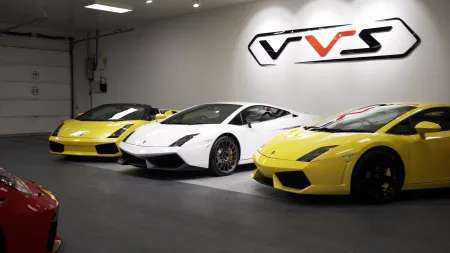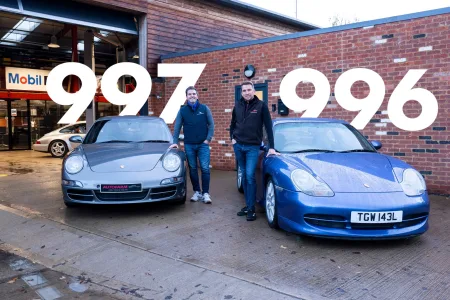19th Jul 2022
A General Market Update (From A Man Who Sold A 4.0 RS At The Very Bottom Of The Market)
by Collecting Cars
CHRIS HARRIS COLUMN WEEK 7
Every boom comes to an end. We have been experiencing a boom - at some point it has to end. Those are possibly the only words I can support as being irrefutable in this column. The rest is opinion, and we all know what is said about opinions.
No single individual identifies the end of a boom period - the truth filters into the market place at the speed a consumer wants to receive it. The person who sold their 2.7 RS for good money last month is now comfortable in the knowledge that prices might slide for a while. They have decided to accept the situation because it suited them. The man who didn’t sell, but still wants to - well he has to believe the market hasn’t turned otherwise he has to digest something he doesn’t want to.
According to that entirely made-up scenario, the end of a boom period must come when there are more people selling cars realising they either have to forget any idea of being shot of it for a long time, or just take the best offer forthcoming, than those assuming it’s business as usual. And that applies to both trade and private sellers.
Have we reached the end of a boom period? I think so. That might seem like an odd thing for me to write here, but I’ve never been scared of the market cycle of motorcars. My late mother was an obsessive gardener, and one of the reasons she said it was so pleasurable was that when the sun was out you could admire your handiwork, when it was pissing it down with rain and everyone was miserable, you were still happy because everything was being fed and watered. It’s the same with cars - during the boom, enjoy the spoils. During the bust, snaffle about for bargains. Buy the machine you never thought you would be able to afford.
The danger period, if it should be called that, is surely the time when the market is frozen. When people are not selling so prices remain unrealistically high, and people are still not buying because they think the market will further turn to their advantage, so it makes sense to keep waiting. If everyone selling a car right now - with special reference to the UK market - is honest with themselves, you probably would have achieved a little bit more this time last year. So that must mean the tipping point has been reached.
And this is the bit I’ve never understood. If you’re still sitting on a profit, or maybe have enjoyed owning and driving something you adored and the depreciation was negligible - what’s the problem? To expect anything more just seems greedy to me. And greed doesn’t tend to end well.
This cycle has been ongoing for decades now, but the market that has emerged from this process in 2022 is one that many of us, including me, wouldn’t quite have believed. It is different to what has gone before. So many factors have influenced it - cheap lending, a global pandemic, a shortage of components, a war, the imminent death of the internal combustion engine. The last one is the great unknown for me - to what extent do people accept or realise that the type of cars we all love are about to no longer be produced? And if they do, is it influencing their decisions and affecting the market? Given the prices of last generation Audi RS3s in the UK, we have to assume the answer is yes. I have no idea what the global market for automotive transactions is - presumably trillions of dollars - but it really is in a unique place right now. Because its staple, the thing it has relied upon for well over a century, is about to die. Other industries that compete for our money aren’t exposed to anything like such changes right now - they might well do in the future once the environmental lobby have killed cars, it will inevitably move onto shipping and air-travel and clothes and meat and so on, but for now the car is the enemy. And the market is currently dealing with a product whose death has already been announced, but which looks like it can legally be used for some time.
To understand how that plays out, I give you one word: Zimbabwe. I spent some time teaching there in the mid-90s. Mugabe was in full-flow and the outside world was growing tired of him. Very few new cars came into the country. The upshot? People weren’t scared of spending money on them - on the contrary, people went to absurd lengths to find the money to buy one for fear of them never being available again. I’d like to suggest the same might happen to the global fast car market, but one thing worries me - I fear too many ‘special’ cars have been produced, and that even the imminent demise of the combustion engine might not be able to avert a slide in values.
But I might be completely wrong about that. And everything else. I refer you to the title of the column to explain that.






Have your say!